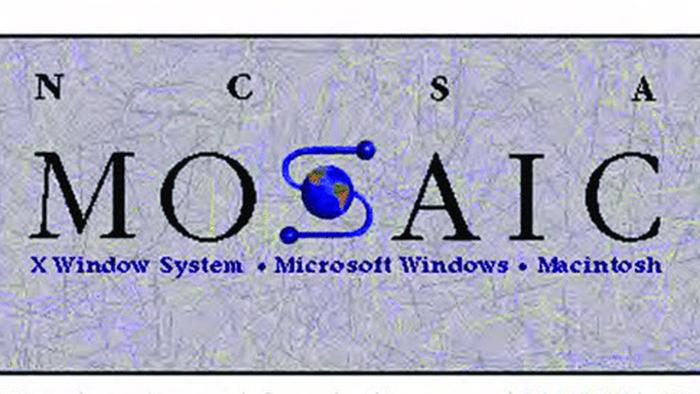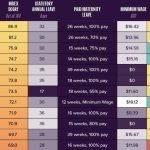By Nicholas Colas of DataTrek Research
This week’s Story Time is a list of things we learned in 2021. We’ll have a look-ahead piece on predictions for 2022 this week.
I (Nick) will start with my biggest personal “Aha” moment of the year: Marc Andreessen describing what he calls “the original sin of the Internet”. There’s a link to an A16Z podcast/Clubhouse recording below, a conversation between Marc and Ben Horowitz, where he goes into detail on this idea. He’s discussed it before, but this was when it all made sense to me.
The backstory: when Marc was building Mosaic, an early Internet browser, he thought it would be very useful to add payment functionality to the software. He approached banks, credit card companies, anyone he thought might be interested. No one was. Crickets …
That led to an internet built on advertising rather than direct commercial interaction. Online advertising is only as effective as the targeting it employs, so a whole industry sprang up to support user surveillance. Social media copied that ad-based approach as it developed a decade later. That’s how we ended up with a low-privacy online environment that can be easily “hacked” to drive attention.
This also explains why a handful of companies – Apple, Google, Facebook, Amazon, etc. – have grown to such critical mass. Without a “buy now” button native to a browser, platforms become the de facto marketplace for buyers and sellers to find each other. And, since platforms live or die based on network effects, only a few survive.
Marc’s vision for the future is one where new technologies allow for platform-less, direct connectivity between economic agents. Virtual currencies, writ broadly, are the mechanism for this transformation to decentralization. They are just the tip of the iceberg, however, at least in Marc’s mental model because once you unbundle the platforms everything changes.
Takeaway: venture capitalists are funding this vision of a decentralized future with billions of dollars, backing founders that share this very specific view on how technology should evolve. Most of these companies will fail or, best case, only recoup the initial investments made in them. A few will work, however, and those will change how consumers shop, save, invest, and interact with businesses. Yes, just like the last 2 iterations of the Internet. The more things change ….
* * *
Now, 3 other thoughts on “things we learned this year”. To be fair, they are not so much “learnings” as examples of how 2021 was a master class in how capital markets actually function.
#1: Only earnings matter. This was not supposed to be a +20 percent year for the S&P 500. We were supposed to get a choppy, grinding 2021 with pandemic issues interjecting themselves on a regular basis. The single reason we are at 4,668 on the S&P is because what should have been a $167/share in earnings year turned out to be $205/share, 23 percent better. The S&P 500 is up 24 percent YTD. No further explanation required. Not Fed policy, not 10-year yields, not which party controls Congress or the White House. None of that has mattered.
Takeaway: as Hal Holbrooke’s character in the movie Wall Street said, “stick to the fundamentals”. As much as the words “extraordinary” and “unprecedented” have been thrown around this year, 2021 was all about corporate earnings when it came to US large cap stock returns. Just like every other year in our +30-year career on Wall Street. We doubt 2022 will be any different, or any year thereafter.
#2: Fulcrum issues drive relative returns. You’d have thought 2021 would be the year of US small caps and Emerging Markets given that’s how investment cycles usually work off a bottom such as 2020. But no, that was not to be. The Russell 2000 is up 9 percent YTD against that 24 pct gain on the S&P 500. The MSCI Emerging Markets Index is down 6 percent on the year. Even MSCI Italy, a country not known for generating large stock market returns, is up 9 percent on the year.
What went wrong? Two simple things:
- US Small Caps trade with high yield corporate spreads. When spreads fall quickly, the Russell outperforms. When spreads get close to their historical lows, the Russell loses momentum. In 2021, high yield spreads stopped dropping in early April; the Russell has been range bound ever since.
- MSCI Emerging Markets is overweight China (33 percent). MSCI China is down 22 percent YTD, thanks to that country’s crackdown on their local Big Tech companies. EEM, the most widely held emerging markets ETF, lost money this year because of this one fact. MSCI Taiwan is up 21 pct YTD. MSCI South Korea is down 9 percent YTD, but MSCI India is up 11 percent. Those are the other large weights in MSCI EM, so ex-China this asset class would have performed much better in 2021.
Takeaway: regular readers know one of our mantras is “don’t overthink things/make them harder than they have to be”, and these are two good examples of how that works in real life. We have written about the challenges facing small caps and EM since April, and they remain even today.
#3: Inflation is always both a mathematical and psychological phenomenon. Milton Friedman famously said it is “always and everywhere a monetary phenomenon”, but he assumed the US velocity of money was reasonably constant. That was true from 1960 – 1990 (1.6 – 1.9x M2 velocity), but it has not been the case since 2000 (M2 velocity has fallen from 2.1x to 1.1x today). That’s why all the money printing since the Financial Crisis had such little effect on goods and services inflation over the last +10 years.
What we have now is mathematical inflation that should ease in the next year, but inflationary psychology that expects the current rate of price increases to continue for the foreseeable future. Much of the latter is due to food and energy inflation. These are two categories that don’t really respond to monetary policy unless there is a significant economic slowdown or recession. Consumers need to eat and drive, pretty much every day.
Takeaway: this is the one 2021 “learning” that is still evolving as we enter 2022 and therefore has no clear resolution. The Federal Reserve is on the case, true, at least in terms of tapering and communication. How this filters through to inflation psychology, and whatever the inflation math turns out to be next year, remains uncertain. The offsetting positive from an investment perspective is that large cap corporate earnings have little to fear from inflation as long as the US economy continues to expand (point #1 above). So, let’s not overthink things too much (point #2). Yet, anyway.
Sources:
Marc Andreessen/Ben Horowitz conversation (audio): https://a16z.simplecast.com/episodes/one-on-one-with-marc-and-ben-EyXRfTSO











